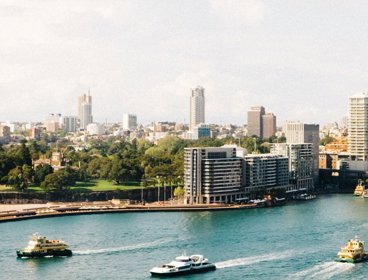Are you conducting archival research for the first time? Read these top ten tips for researching in archives to find out how to make the most of your time.
This article was originally written for the RGS-IBG Postgraduate Forum.
1. Check opening hours and restrictions
Archives may not be open for seven, six, or even five, days a week (one of the archives I am researching at is only open between Wednesday and Saturday), and have different restrictions as to whether, for example, you can or cannot take photographs - so make sure you check the opening hours and restrictions carefully to avoid disappointment.
2. Allow time to register and bring relevant documents with you
You will usually need to register before using a particular archive. Make sure that you factor in the time for this - and then the time it will take to order a document at the archive (40 minutes at the National Archives, for instance) – into your day, and remember to bring any relevant documentation (for instance proof of identity or passport photos) which you may need.
3. Remember to bring a pencil!
If you are planning on making notes, remember that most archives only allow you to write in pencil. So don’t forget to bring one along!
4. Treat documents with care
Almost needless to say really, but make sure that you treat the (often quite old) documents which you are looking at with care, and don’t rip them, otherwise you will be in big trouble!
5. Don’t just take pictures
Whilst it is tempting to snap away on your camera or phone and look at all of the documents when you get home, sometimes it is best to read the paperwork in front of you and establish what is happening, and how things link together, to help with your analysis later on- unless you are pressed for time of course. And when you do take photographs, remember to somehow note down where it is from, in terms of its file number and what it relates to, so that you don’t get in a muddle later on.
6. Try not to get too distracted
It is easy to go off on a tangent when you are researching in archives- particularly if you find the subject matter really interesting- and end up looking at something that, in your heart of hearts, you know isn’t really relevant. Try not to get too sidetracked!
7. Make friends with the archivists
Don’t be afraid to ask for help or advice- it is what the archivists are there for! And make sure you abide by all of the rules…
8. Don’t panic!
Sometimes you have limited time, and it seems like you will never get through all of the things which you wanted to see. Try not to panic, or to look at several things all at the same time (as I have done in the past). It is often better to look at fewer things in detail rather than look at lots of things in brief.
9. Bring a jumper
Archives are often chilly, whether this is because they are in a basement or due to their air conditioning. Wrap up warm!
10. Take time to reflect and enjoy
The documents in your hands are potentially hundreds of years old, written by or to famous (or sub-famous) historical figures, and may not have been looked at by anybody else in years. And here you are, being paid to look at this stuff which is (hopefully) of great personal interest to you. Kind of cool, right? Take a moment to reflect; you’ll miss these days when you are writing up.
About the author:
Mark Lambert is the secretary for the PGF Committee. Mark is a PhD student at the University of Nottingham, having undertaken his undergraduate degree in Geography (BA) and his MA in Landscape and Culture at this institution. He is an historical geographer researching railway preservation in the UK between 1948 and 1975 - for example why railway museums were established by the state, what objects were chosen (or not chosen) to be put into these, and the debates and discussions about where they should be established. His work builds on studies of the co-constitutive relationship between railways and western culture, utilising object-centred approaches in order to trace the biographies of particular preserved items before and after they were designated as being of historic importance, and also drawing upon research on the cultures of enthusiasm as a means to analyse the enthusiast individuals and groups who were often instrumental to the preservation of railway artefacts in this era. In his spare time, Mark enjoys hiking, birdwatching and watching TV.




